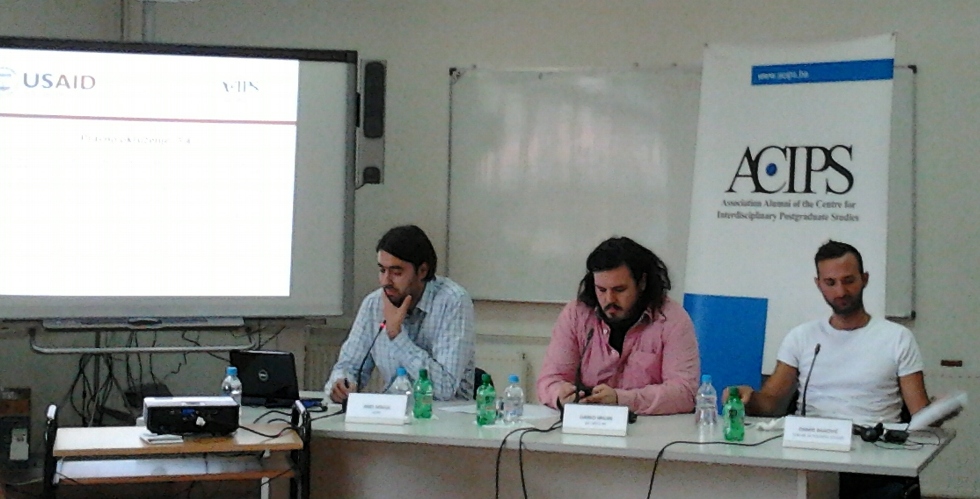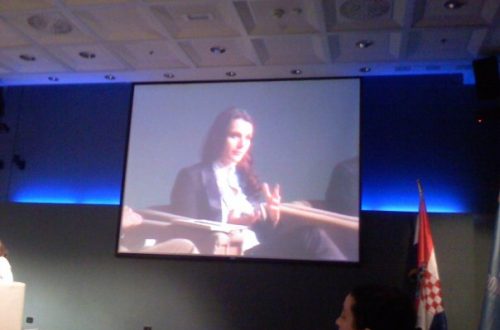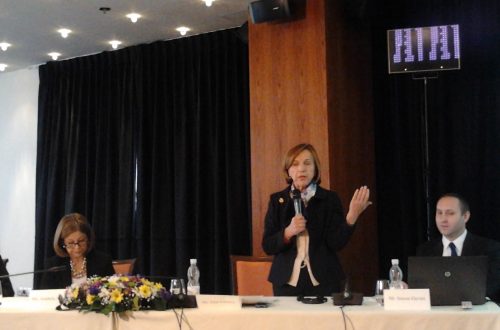
Presentation and Discussion: The 2012 Civil Society Organization Sustainability Index (CSOSI) for Bosnia and Herzegovina
On August 23, 2013, ACIPS (Association Alumni of the Centre for Interdisciplinary Postgraduate Studies) organised a presentation and discussion about Civil Society Organization Sustainability Index (CSOSI) for Bosnia and Herzegovina for 2012, which was attended by Populari’s representatives, Aldijana Okerić intern and Katarina Cvikl, researcher.
The presentation and discussion were led by Anes Makul, President of ACIPS, Darko Brkan, President of Citizens’ Association ‘Zašto ne?‘ and Damir Banović, Executive Director of Center for Political Studies.
The Index represents a mechanism used by USAID to follow the progress of civil society organizations’ sustainability in the countries of Central and Eastern Europe and Eurasia. During this presentation Anes Makul outlined some of the focal issues of the 2012 Report. The Index measures the sustainability of each country’s CSO sector based on the seven dimensions of the index: legal environment, organizational capacity, financial viability, advocacy, service provision, infrastructure, and public image. The score range is from one to seven, where one represents a high level of sustainability. When it comes to Bosnia and Herzegovina, results are best in the area of advocacy with a 3.2 score, as well as public image, legal environment and organizational capacity all with 3.4 scores. Financial sustainability scores the lowest at 4.7. The report states that CSO remain largely dependent on the support of the international community.
As it was pointed out during the discussion, the problem related to this specific index is the methodology that has been used while creating it. The cross-section score for the work of all organizations in Bosnia and Herzegovina is given based on the assessments of only fifteen representatives of the civil society. The report does not specify which fifteen organizations precisely were involved in this focus group during which the scores for each of the seven aforementioned areas were given. The question that thus arose is how exactly this report can be representative and objective when it comes to rating the work of CSOs in the country.
Adis Arapović, representative of the Center for Civic Initiatives has stressed that such a report can in fact be used against civil society organizations as the methodological and narrative part have several shortcomings.
‘The narrative part that follows the statistical display of scores is too general, the sentences that were used to describe the statistical data are written arbitrarily, without any relevant references. Therefore, we reach a paradoxical situation where the sustainability report can be used against sustainability itself,’ emphasised Arapović.





